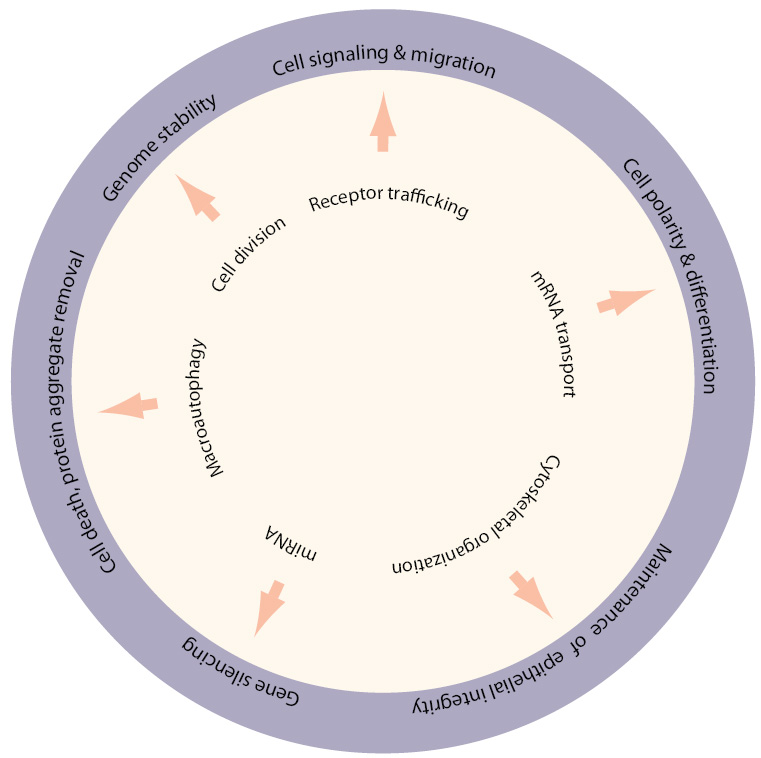Rusten and Stenmark with review in Nature Cell Biology

Several of these functions are relevant to tumour suppression, and ESCRT components have indeed been identified as tumor suppressors in mice and fruit flies.
Rusten and Stenmark have co-authored the review with Thomas Vaccari from the FIRC Institute of Molecular Oncology in Milan, an expert on tumourigensis and developmental processes in fruit flies.
 |
| Developmental processes (indirectly) controlled by ESCRT proteins, and their underlying cell biological basis. (click to enlarge image) |
Links:
Shaping development with ESCRTs.
Rusten TE, Vaccari T, Stenmark H.
Nat Cell Biol. 2011 Dec 22;14(1):38-45
Harald Stenmark's group - Intracellular Communication
Tor Erik Rusten's project group - Phosphatidylinositol signaling & disease
